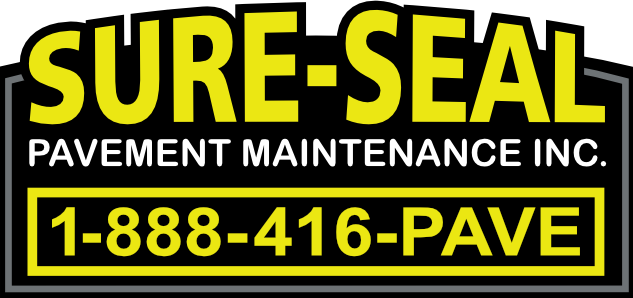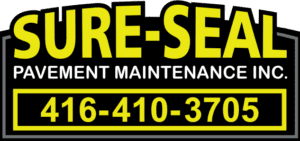 Asphalt edge cracking refers to those cracks that start on the side of the road and then spread toward the centre over time. They pose a very big safety hazard for vehicles, which is why asphalt crack repairs should be administered as soon as possible. If left untreated for too long, edge cracking can spread very quickly and lead to other damages.
Asphalt edge cracking refers to those cracks that start on the side of the road and then spread toward the centre over time. They pose a very big safety hazard for vehicles, which is why asphalt crack repairs should be administered as soon as possible. If left untreated for too long, edge cracking can spread very quickly and lead to other damages.
Causes of Asphalt Edge Cracks in Roads and Driveways
There are a number of reasons why asphalt edge cracks occur on roadsides and driveways.
Rural Roads
Asphalt edge cracks develop more often on rural roads than they do on main roads, and they are usually symptoms of deeper underlying problems in the pavement. Rural roads are typically much narrower than main roads, so vehicles travelling in opposite directions often have to move closer to the edge of the road when passing one another. If the foundation of the asphalt is weak, thin, or old and has not been properly maintained over the years, then the constant weight and pressure exhibited by cars on the edge—usually larger vehicles, like trucks or tractors—causes the asphalt to degrade a lot faster.
Also, if the roads are not equipped with proper drainage systems, then the water will pool at the side of the road and get beneath the surface, causing the ground to erode. Daily temperature changes and weather patterns can also contribute to the formation of asphalt cracks. Cold temperatures cause the asphalt to shrink, and heat from the sun can cause the pavement to become brittle and break apart. Of course, the damage is not done overnight. It starts below the surface and it can take years before the damage is noticeable in plain view. This is why proper road maintenance is crucial and asphalt repair should take place as soon as the disrepair is discovered.
Driveways
Driveways share many of the same characteristics as rural roads, which is why they are also highly susceptible to asphalt edge cracking. They are narrow and, if they are not properly maintained or have a weak base to begin with, then edge cracking is more likely to occur. Like rural roads, many driveways often hold more than one vehicle at a time on both sides, which means vehicles might be driven closer to the edges when entering and exiting the driveways. Most driveways are arguably used more often than rural roads, which might warrant repairs more often than rural roads. Driveways also have to contend with condensation and water leakage from plants or the lawn in the front yard; this is problematic for the asphalt because the water can seep below the asphalt and cause water damage to the foundation over time.
Despite all of these contributing factors, there are ways of protecting both the asphalt on rural roads and driveways from cracking. It is important to conduct asphalt edge crack repairs before the cracks worsen.
[button size=”medium” style=”primary single-post-btn skew-button” text=”Get a Free Consultation Now!” link=”Contact Us” target=””]
Tips to Protect Asphalt from Edge Cracking
Here are some things you can do to protect rural roads and driveways from asphalt edge cracking. First and foremost, make sure that you instal a proper drainage system when laying down the asphalt. Second, to ensure the longevity of the asphalt, make sure you have a strong and cohesive base set. This will prevent misalignment underneath, which in turn prevents unevenness and gaps from forming in the sub-grade of the asphalt, which leads to cracks on the surface. Last but not least, apply a protective layer of sealcoating as soon as the asphalt is dry to protect it from external damage caused by weather, temperature changes, and overall usage. On top of this, you must make sure that you are properly maintaining the pavement by applying crack fillers and fixing the asphalt at the first signs of disrepair.
Contact Sure-Seal Pavement Maintenance Inc. Asphalt Crack Repairs in Toronto
Sure-Seal Pavement Maintenance Inc. has over 20 years of experience working in all types of asphalt repair. We are always willing to offer premium services for affordable prices. For more information, please call our number 416-410-3705 or if you’re in Toronto, you can call 416-410-3705.

